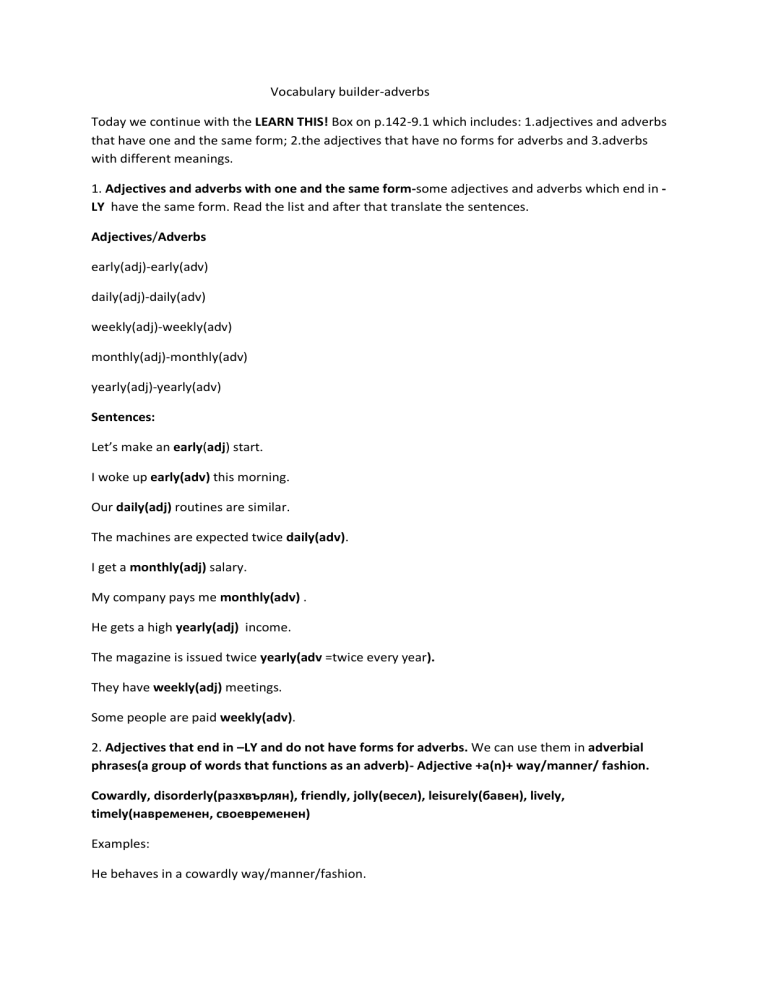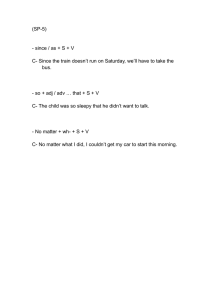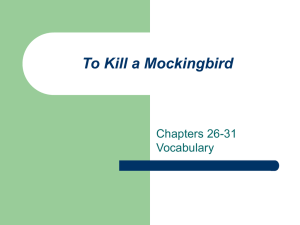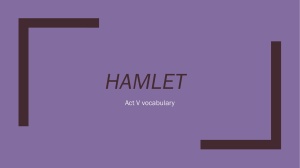
Vocabulary builder-adverbs Today we continue with the LEARN THIS! Box on p.142-9.1 which includes: 1.adjectives and adverbs that have one and the same form; 2.the adjectives that have no forms for adverbs and 3.adverbs with different meanings. 1. Adjectives and adverbs with one and the same form-some adjectives and adverbs which end in LY have the same form. Read the list and after that translate the sentences. Adjectives/Adverbs early(adj)-early(adv) daily(adj)-daily(adv) weekly(adj)-weekly(adv) monthly(adj)-monthly(adv) yearly(adj)-yearly(adv) Sentences: Let’s make an early(adj) start. I woke up early(adv) this morning. Our daily(adj) routines are similar. The machines are expected twice daily(adv). I get a monthly(adj) salary. My company pays me monthly(adv) . He gets a high yearly(adj) income. The magazine is issued twice yearly(adv =twice every year). They have weekly(adj) meetings. Some people are paid weekly(adv). 2. Adjectives that end in –LY and do not have forms for adverbs. We can use them in adverbial phrases(a group of words that functions as an adverb)- Adjective +a(n)+ way/manner/ fashion. Cowardly, disorderly(разхвърлян), friendly, jolly(весел), leisurely(бавен), lively, timely(навременен, своевременен) Examples: He behaves in a cowardly way/manner/fashion. She spoke in a jolly way/manner/fashion. They had their lunch in a leisurely way/manner/fashion. 3. Some adverbs with two forms can have close or different meanings depending on the context. Mеmorize the meanings of the following adverbs: Close( близо)-closely ( внимателно) Late (късно)-Lately( напоследък) Deep (дълбоко)-deeply( много; много силно) Hard( усилено)-hardly (едва; почти никак) High( високо)-highly (много) Just (току-що)-justly (справедливо) Late (късно)-lately (напоследък) Near (близко)-nearly( почти) Wrong (погрешно)-wrongly( неправилно, погрешно) 4. Now translate the sentences in the LEARN THIS! box and the following sentences in order to memorize easily the meanings of these adverbs. A) I can hardly believe that he has gone./ She works very hard. B) Lately there has been a rise in the price of vegetables./ He went there late. C) They offended her deeply./ The miners were trapped deep underground. D) He has done something wrong./ The sentence had been wrongly translated. E) I’ve worked here for nearly two years./ Visitors come here from near and far. F) It is highly unlikely that she’ll be late./ I can’t jump high. G) I’ve just finished writing./He was justly accused of murder. 5. The last exercise is ex.1 which is after the Learn This! box. That’s all for now, send your answers today.



